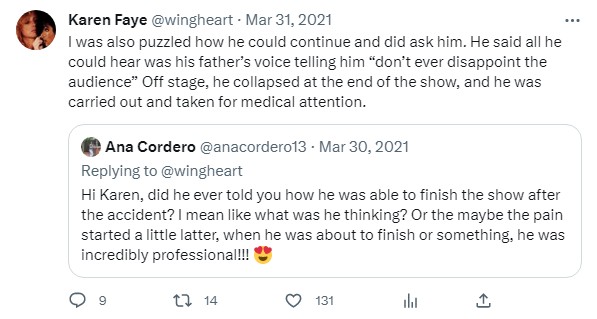jasmine.uddin
Proud Member
Chapter 32 continued.
DB writes about the TDCAU video where the focus on 'South American poverty' counteracted the earlier issues of anti-Semitism surrounding the song. He concludes the songs reception was 'modest and fading' entering at number 30 in the US charts, while entering the top 10 in European charts. DB quotes Frank Ceraolo from the labels promotion team, he reflects how there was 'pressure' to 'deliver' club records when the album wasn't club records leaning. He remembers that this was difficult enough to do with Scream, then there were songs like ES, SIM and TDCAU. He claims the remixes of YANA and ES successfully achieved this effect. He reflects how MJ trusted him to deliver on remixes and suspects MJ was very 'hands off' when it came to remixes due to MJs own lack of knowledge and experience of club music experiences since Studio 54.
DB writes that his mother 'quietly' passed away 3 months after his father's death. This led to a big perspective shift for DB on how much his work impacted his life and whether it was worth it. He had heard himself referenced as 'the machine' by his colleagues due to his approach to his work. He attended his mother's funeral and recalled her own fears about him searching 'a desperate dream' that would lead him and her heartbroken. And how his pursuit of that dream was probably an effort to counteract her fears. He found himself pondering on his mother's tireless efforts on her children.
Companies from the international label were confident in continuing the campaign for History, partly due to the tour announcement. Due to pressure from these counterparts, the label released SIM video with Nick Brandt. MJ was busy pursuing the Ghosts video, while DG and DB 'lamented the lack of direction'. DB bought Steve Einczig to oversee the project with him. SE had worked on OTW and was familiar with MJ, DB fondly remembers how SE referred to MJ as 'the kid' in their private conversations.
To be continued.
DB writes about the TDCAU video where the focus on 'South American poverty' counteracted the earlier issues of anti-Semitism surrounding the song. He concludes the songs reception was 'modest and fading' entering at number 30 in the US charts, while entering the top 10 in European charts. DB quotes Frank Ceraolo from the labels promotion team, he reflects how there was 'pressure' to 'deliver' club records when the album wasn't club records leaning. He remembers that this was difficult enough to do with Scream, then there were songs like ES, SIM and TDCAU. He claims the remixes of YANA and ES successfully achieved this effect. He reflects how MJ trusted him to deliver on remixes and suspects MJ was very 'hands off' when it came to remixes due to MJs own lack of knowledge and experience of club music experiences since Studio 54.
DB writes that his mother 'quietly' passed away 3 months after his father's death. This led to a big perspective shift for DB on how much his work impacted his life and whether it was worth it. He had heard himself referenced as 'the machine' by his colleagues due to his approach to his work. He attended his mother's funeral and recalled her own fears about him searching 'a desperate dream' that would lead him and her heartbroken. And how his pursuit of that dream was probably an effort to counteract her fears. He found himself pondering on his mother's tireless efforts on her children.
Companies from the international label were confident in continuing the campaign for History, partly due to the tour announcement. Due to pressure from these counterparts, the label released SIM video with Nick Brandt. MJ was busy pursuing the Ghosts video, while DG and DB 'lamented the lack of direction'. DB bought Steve Einczig to oversee the project with him. SE had worked on OTW and was familiar with MJ, DB fondly remembers how SE referred to MJ as 'the kid' in their private conversations.
To be continued.
Last edited:


